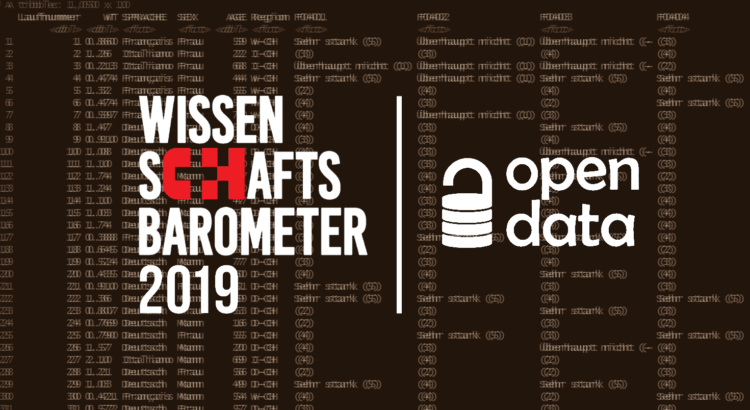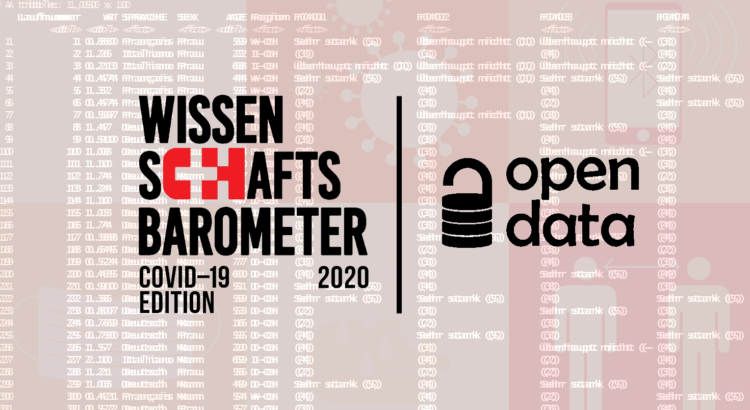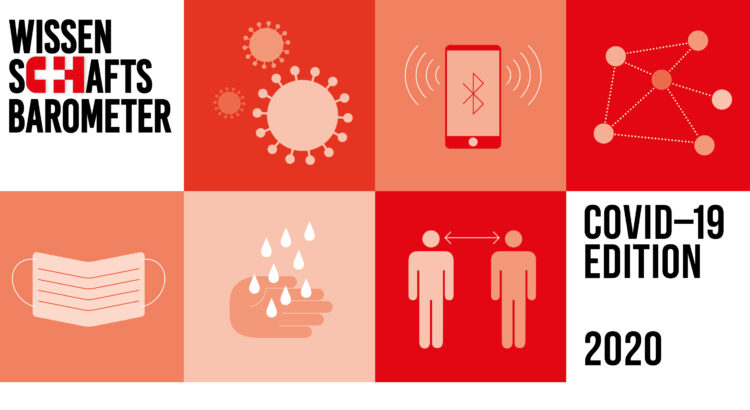The data of the Science Barometer Switzerland of 2019 are now also available at FORSbase. They can be accessed and used for academic research.
The data from the first survey wave of the Swiss Science Barometer from 2016 are already stored in the online repository FORSbase of the Swiss Centre of Competence for the Social Sciences (FORS). Now the data from the second survey wave from June and July 2019 can also be accessed there. The data set comprises 1,050 cases and 110 variables on the socio-demographic characteristics of the respondents, their attitudes towards science and research, their knowledge about it and their information behaviour. Detailed information on the method and the questionnaires in German, French and Italian are attached to the data set. The use is limited to academic research.
Befragungsdaten des Wissenschaftsbarometer Schweiz 2019. Universität Zürich, Zürich. Distributed by FORS, Lausanne 2020. https://doi.org/10.48573/wpf5-hf36


